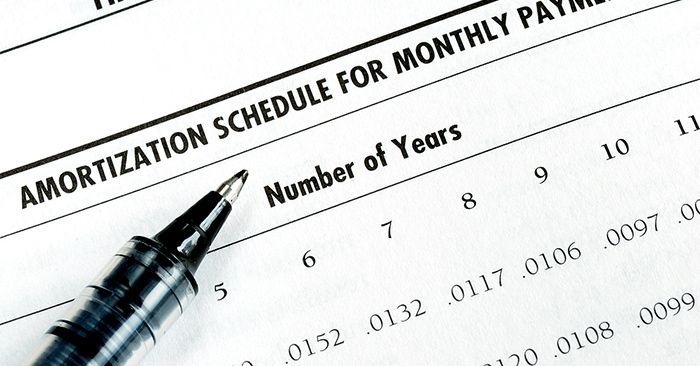What You Can Gain — Or Lose — Selling Your Home to an iBuyer

What You Can Gain — Or Lose — Selling Your Home to an iBuyer
An iBuyer can help you to sell your house quickly by skipping some of the hassles of having a home on the market and letting you set your own timeline. But selling to an iBuyer — a real estate company that uses tech to buy and resell houses — isn’t for everyone. Not all homes will qualify, even if you live in an area where iBuyers operate. And while you can be sure that the sale will go through because there’s no mortgage involved, you won’t know whether you could have gotten a higher price for your home from a traditional buyer.
Here are some pros and cons to consider before selling your home to an iBuyer.
Pros of selling your home to an iBuyer
Convenience
Not having to prepare your home for sale or make it available for potential buyers can be a huge plus for sellers. “That’s something that’s hard to place dollar values on too, like getting your kids and dog out the door to facilitate home showings,” says Charles Stewart, who’s in corporate communications for Opendoor. “It’s not just the final dollar amount you’re getting, it’s the convenience factor.”
Timing
In a buyer’s market, the need to sell quickly can work against you. If a traditional buyer finds out you’re in a hurry, they could use that as leverage to make a lower offer. But with an iBuyer, it’s expected that the process will be fast. Though you can always request a new offer, iBuyers’ initial offers are usually valid for less than a week.
An iBuyer can also help with timing in a hot real estate market. If you’re concerned about finding a new place, you can choose a closing date that’s further out (depending on the iBuyer, it can be as distant as 90 days). You may also be able to rent back your house after the iBuyer purchases it, buying you a bit more time.
Predictability
With an iBuyer, you know exactly when things will happen since you set the closing date and you don’t have to worry about the mortgage financing falling through at the last minute. “People who are moving across the country trying to time their move to the sale of their house, it’s next to impossible,” says Amanda Pendleton, communications manager for Zillow. With an iBuyer, you’ll know exactly when to hire the movers.
Cons of selling your home to an iBuyer
Qualifications
Not only do you need to be in a market where iBuyers operate, but you also need to have they kind of home they’re looking for. Houses that need extensive repairs are out, but so are higher-end homes, houses that are highly customized and most older homes.
“Each market has its own set of parameters,” says Tyler Hixson, director of real estate partnerships and strategy at Opendoor. “Whatever is the typical home for that market, the typical home is one that we can service.” Broadly, houses, condos, and townhomes that are relatively new are the most likely to fit the iBuyer model.
Opportunity cost
Since iBuyers are still relatively new, robust data on what they’re paying for homes is hard to come by. Studies have conflicting evidence, with some finding that iBuyer offers are close to market value, and others demonstrating wider gaps.
Both Zillow Offers and Opendoor emphasize that they offer “fair market prices” based on both computer algorithms and human analysis (iBuyers do have actual boots on the ground in the markets where they operate). But since you’re dealing with a what-if scenario, you can’t truly know whether you would have gotten a better price by selling your house the traditional way.
Repairs
After you’ve agreed to an iBuyer’s offer, the iBuyer does an assessment (this is similar to, though not the same as, a home inspection). The assessment is designed to uncover things the iBuyer might need to repair or replace in order to sell your house.
Though you can negotiate to do the repairs yourself, that may not be an option if you’re in a hurry to move. If the iBuyer does the repairs, the costs will be deducted from what they pay you, meaning the assessment could end up taking a big bite out of your original offer.
Weighing the pros and cons of selling to an iBuyer
Determining whether your property fits an iBuyer’s qualifications is a first, necessary hurdle. If it does, and you’re curious as to whether to take the next step, bear in mind that many iBuyers will give you an offer without requiring a commitment. You may be able to request offers from more than one iBuyer, depending on where you live.
iBuyers generally make limited-time offers (you’ll usually have less than a week to accept), but seeing an actual number might give you a nudge to move forward. On the other hand, it could tip your hand toward going the traditional route and looking for a listing agent.
Either way, you’ll need to decide what’s worth more to you. Don’t want to deal with prepping your house to sell and making your schedule work around showings? An iBuyer might be right for you. More concerned with maximizing your profit? Getting a savvy seller’s agent and doing a traditional sale may be a better bet.
The article What You Can Gain — Or Lose — Selling Your Home to an iBuyer originally appeared on NerdWallet.
Share this post




